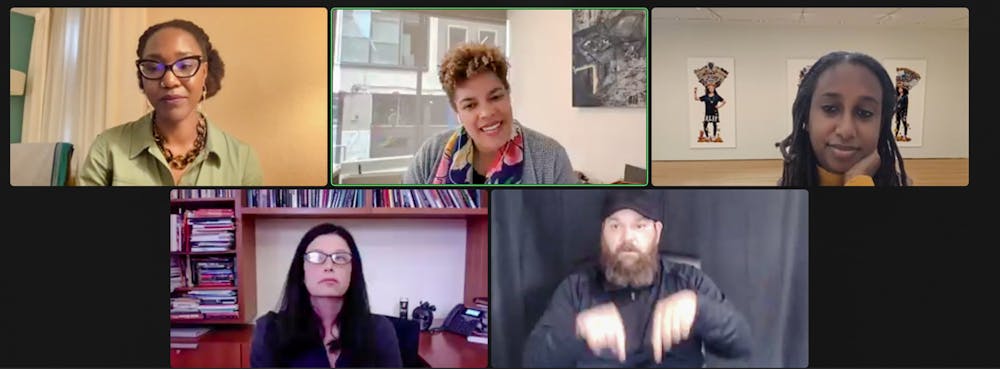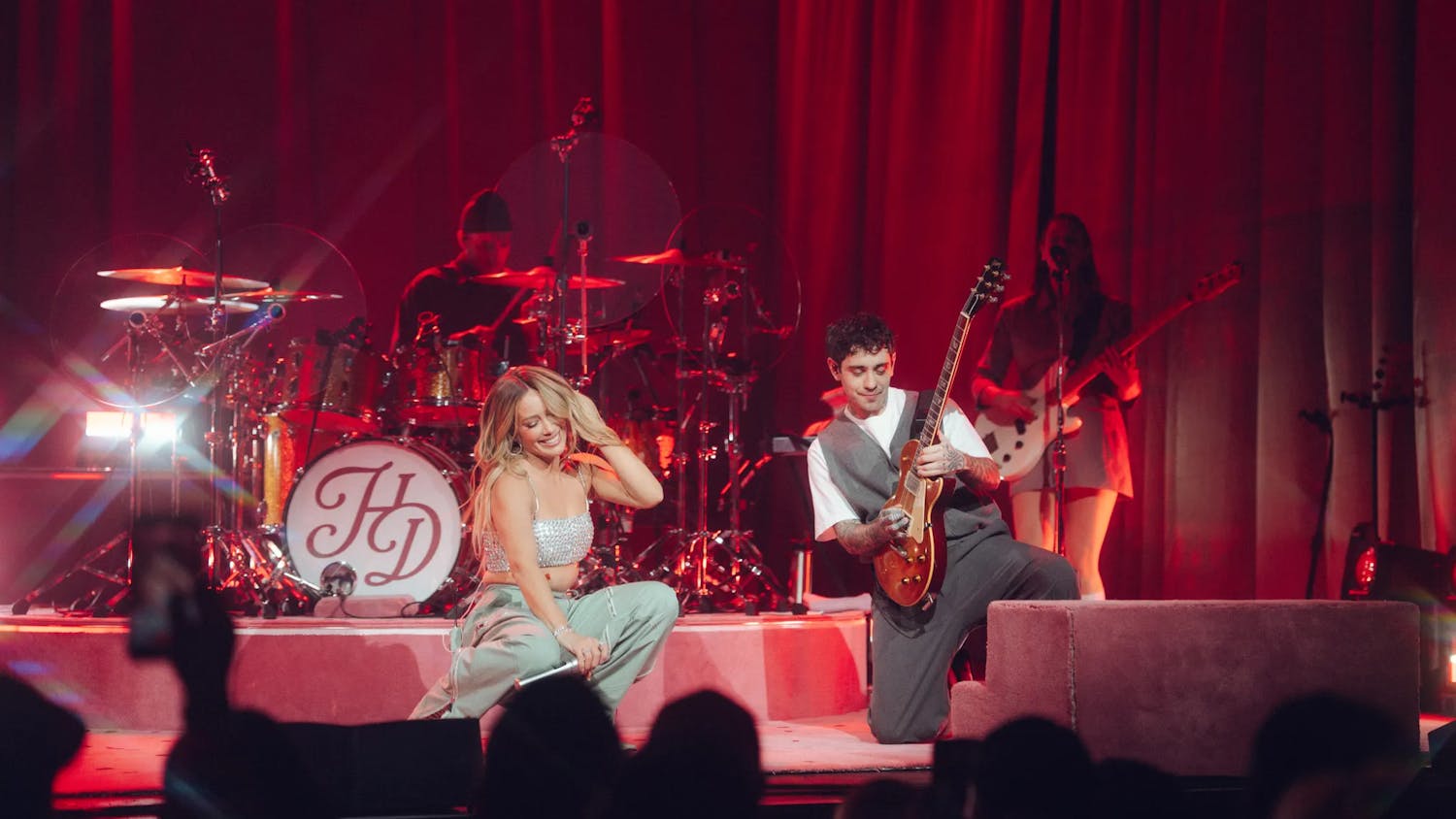On Tuesday, the Center for the Study of Race and Ethnicity in America hosted “Race & Performance in America,” its final event in the 2021-22 “Race & in America” series. This event followed five other virtual events this semester and in the fall, including “Race & Inequality” and “Race & Poetry.”
The speakers at the event discussed structural racism in the performing arts and explored how they have navigated performances as women of color.
Provost Richard Locke P’18 gave opening remarks highlighting the importance of addressing systemic racism in the United States and specifically at Brown. “We can and we must be agents of change,” he said.
Locke also introduced the speakers at the event: Assistant Professor of Visual Art Helina Metaferia, Associate Professor of Art at Wellesley College Nikki Greene and Professor of Theater Arts and Performance Studies Patricia Ybarra. The event was moderated by Inaugural Artistic Director of the Brown Arts Initiative and Professor of the Practice of Arts and Classics Avery Willis Hoffman.
Hoffman echoed Locke, highlighting the importance of discussing performance and race. She said that it is an important time for “wrestling and reckoning with race and the structural racism that we see in performing arts and other art entities,” adding that these structural factors can affect how society perceives art.
Ybarra spoke first and discussed her work as part of an editorial collective that examines the history of theater. Her presentation entitled “Canonizing the History of Race as/and Performance” shared how she reworked a new edition of the textbook “Theater Histories.”
According to Ybarra, the new edition of the textbook will discuss how violence and racial impersonation, or when actors pretend to be a person of a different race, are at the heart of the history of performance, a fact which she said has previously been ignored. Additionally, she said she wants to embrace demands she’s heard from students for more inclusion in performance.
Ybarra inserted various sections within the textbook meant to correct the lack of recognition of racism in performing arts, including sections on the place of BIPOC-led rebellions in the Americas and racial impersonation as white supremacy. She added that these additions will make readers reconsider what they know about artists of color, whose historical importance is often overlooked, she said.
After Ybarra, Metaferia shared a presentation on her exhibition “By Way of Revolution,” in which she sought to construct a project that “creates space for powerful dialogue and communion amongst BIPOC women identifying (cis, trans, gender non-conforming) people, who have historically served as overlooked yet vital assets within care politics and activist labor,” according to her website.
Metaferia explained that her process began with the compilation of materials and stories that show “what activism looks like across generations.”
As part of the exhibition, students working with Metaferia had the opportunity to be photographed. These photographs were presented alongside photos of activists that the students felt represented them, she said. The exhibition also contained a collection of signs and buttons formatted to appear like a protest, she said.
The pieces in the exhibition “can actually be used in the world as instruments for change,” Metaferia said. After the project was showcased at the Museum of Fine Arts in Boston, striking union members printed copies of the signs in the exhibition, she added.
Metaferia also shared videos from her project “The Call,” which was composed of performances by the descendants of prominent civil rights activists. She said that the film was made to “report oral history” of these activists.
The last speaker was Greene, whose presentation “When We Gather: María Magdalena Campos-Pons and the Collective Creativity of Women” discussed the film “When We Gather,” a collaboration of seven women of color artists organized by Campos-Pons.
Greene followed Cuban-born artist Campos-Pons to her art exhibitions in Cuba, New York and Germany and witnessed the making of “When We Gather.” For the film, which was inspired by the election of Vice President Kamala Harris in 2020, Campos-Pons asked the artists of color to create a performance of “movement, prose and a sonic landscape,” Greene said.
Greene said that it was transformative to see Campos-Pons work virtually alongside the other female artists after having covered Campos-Pons’s previous works.
The purpose of “When We Gather” was to create a project for healing, unity and creation, Greene said. “ ‘When We Gather’ … continues to be an invitation … for collective renewal” to care for one another, she added.
The end of the event featured a question and answer session with the speakers. One question that Hoffman asked was about experiences with post-pandemic performance.
Greene said that the pandemic affected the way that people can access performances due to restrictions such as gathering limits and mask requirements.
She also brought up the idea that the pandemic has forced us to rethink who we want to share our space with.
Ybarra said that symbolic acts such as “sharing breath,” which are present in many performances, have become difficult with the pandemic. As a result, she said that many performances feel like risk management.
In response to another question regarding the history of performance, Ybarra said that during her career she has seen an expansion of inclusivity in theater.
In reference to performers of color, she said that theatrical “spaces weren’t built for us, but we are always here.”
Kaitlyn Torres was the senior editor of community for The Brown Daily Herald's 133rd Editorial Board. She previously covered diversity as a University News section editor. In her free time, Kaitlyn enjoys listening to The Arctic Monkeys and going on archaeological digs.





